On April 9th, the International Symposium on Emerging Engineering Education with the theme of “Towards the Fourth Industrial Revolution” was held at Tianjin University (TJU). As the first international symposium on emerging engineering education, the conference discussed the reform and development of the world’s higher engineering education, and jointly explored new ideas and models for future-oriented engineering excellence.
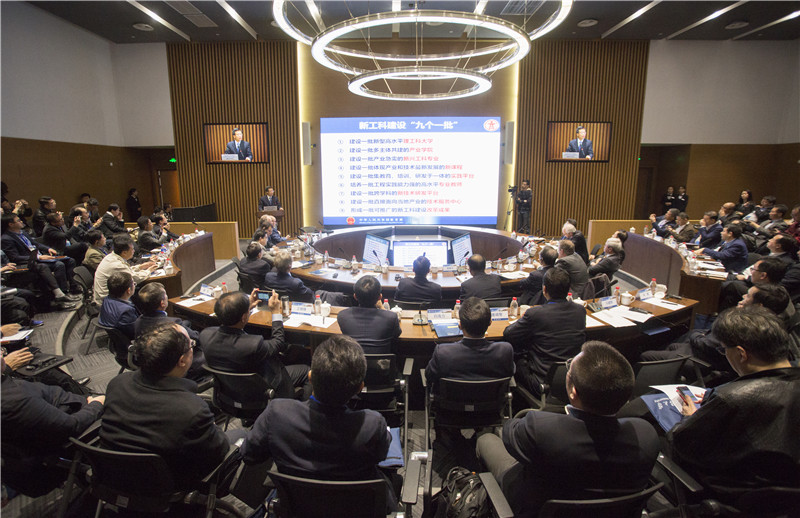
To meet the challenges of the fourth industrial revolution, the symposium proposed the "Initiative to Establish the International Alliance of Emerging Engineering Education". The alliance, with members from higher education institutions and enterprises around the globe, is aimed at promoting strategic cooperation in cultivating future engineering talents.
Directed by the Ministry of Education and organized by TJU, the symposium attracted over 150 participates. Thirteen representatives delivered keynote speeches. During the round table discussion, participants shared their experience in the training of engineering talents and the concept of emerging engineering education in their universities and institutes. They also conducted in-depth exchanges and discussions on the concept and paradigm of international emerging engineering and training personnel in higher engineering education.
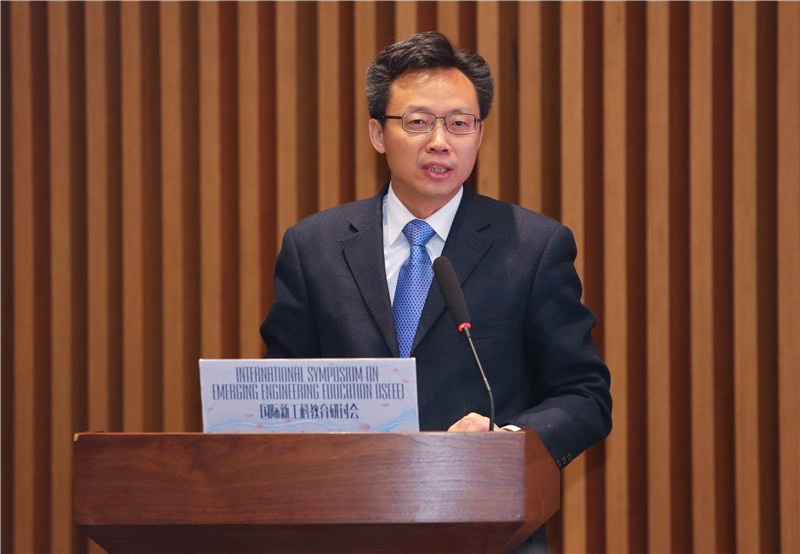
Wu Aihua, the director of Department of Science and Technology, Division of Higher Education of the Ministry of Education of China delivered a special report regarding the exploration and practice of higher engineering education reform in China. He introduced the achievements China has made in actively promoting the development of innovative engineering disciplines. Wu pointed out that China is a participant, contributor, as well as leader in the development of global engineering education reform. China's education interface will lay out the emerging engineering majors to the future, establish a more diversified and individualized engineering education training model, and continuously improve the ability of innovation and entrepreneurship and cross-border integration of engineering and scientific personnel to create a world engineering innovation center and a talent high ground.
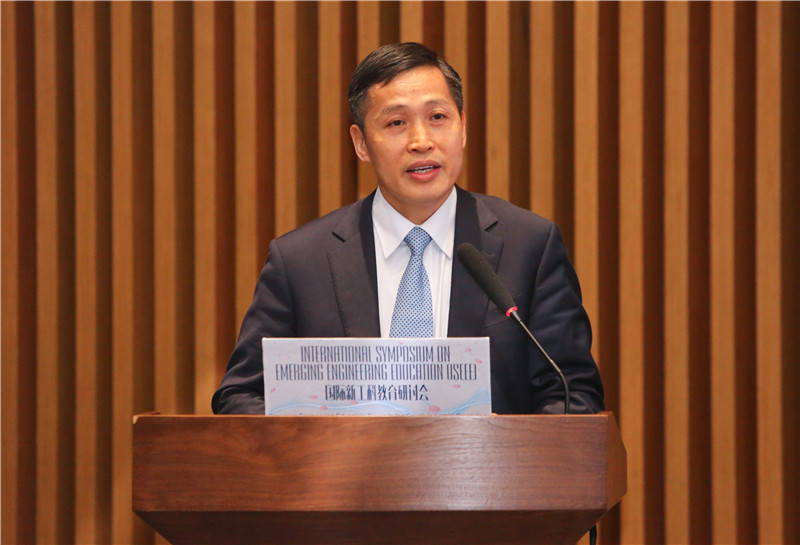
TJU is an active advocate and leader in the creation of emerging engineering education. Zhong Denghua the president of TJU delivered a keynote report. He intensely analyzed the situation and connotation of emerging engineering education and pointed out we need to cultivate innovative excellent engineering talents. Zhong systematically introduced China's exploration and practice in various aspects including route construction, research and practice experience, and university-enterprise cooperation. “Emerging Engineering Education is a stunning new reform for engineering education”, he said, “We continue to share best practices, and provide experiences to prepare future engineers to lead and innovate”.
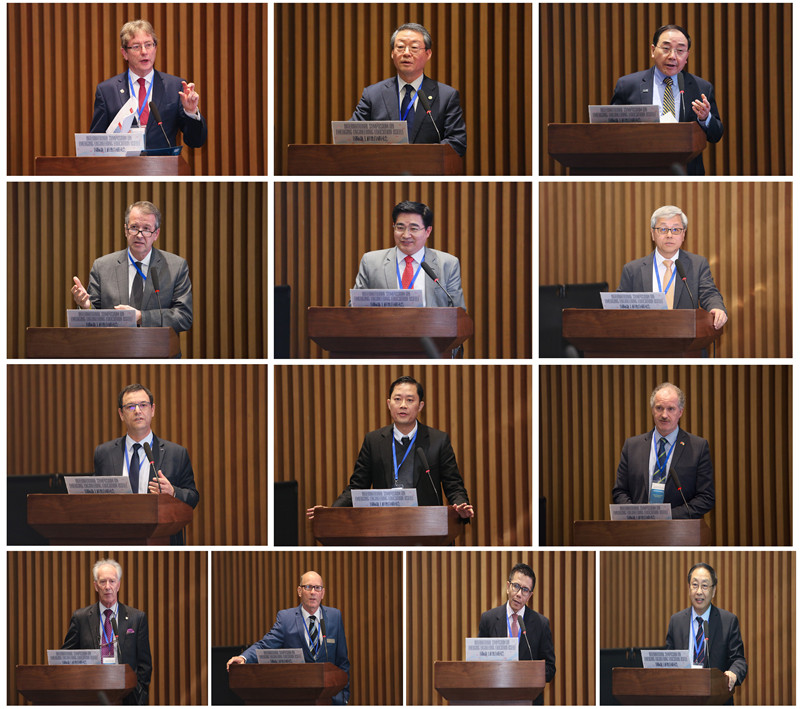
Many participants proposed that with an eye on emerging engineering education, teaching methods must also advance with times. Jim Browne, Honorary President of National University of Ireland, Galway, proposed that the challenge faced by the emerging engineering education is like Industry 4.0 in its complexity. Engineers will keep learning from the university’s classroom throughout their entire career. In emerging engineering education, more learning methods must be developed to meet personalized knowledge requirements.
Hanyang University cultivated a high percentage of CEOs in South Korea. Young Moo Lee, the president of this institute, talked about the change of classroom space and explained his ideas for future teaching methods of the innovative engineering education. He introduced that Hanyang University has transformed traditional classrooms into knowledge studios where students get grouped together. In the smart studios, students organize to learn through "solving problems." Also, they introduced business demands into teaching and conduct courses based on the actual needs of partnerships.
The integration of disciplines is the main experience of many colleges and universities in cultivating innovative engineering talents. Jack Hu, vice president of the University of Michigan, USA, believes that distinguished engineers must not only obtain an excellent technical background, but also gain global knowledge and international competitiveness. We need to cultivate thinkers and innovators. Educators must be student-centered and cultivate students' creative, cognitive, collaborative, and problem-solving abilities. In terms of curriculum setting, apart from the engineering profession itself, mathematics, sociology, and humanities disciplines are the basic courses for qualified training engineers.
Chen Guohua, the associate vice president at the Hong Kong Polytechnic University, introduced chemical engineering education as an example. He introduced the development of chemical engineering in the direction of sustainable, life, and information. Chemical engineering teaching is also facing changes. Special courses such as heat conversion and heat transfer are needed to integrate with art and technology to cultivate comprehensive talents.
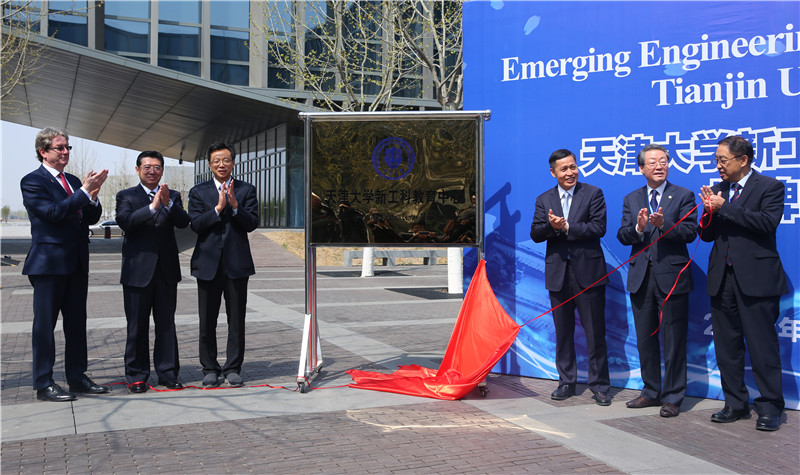
During the conference, Tianjin University’s Emerging Engineering Education Center was formally launched.
By: Qin Mian
Editor: Keith Harrington






